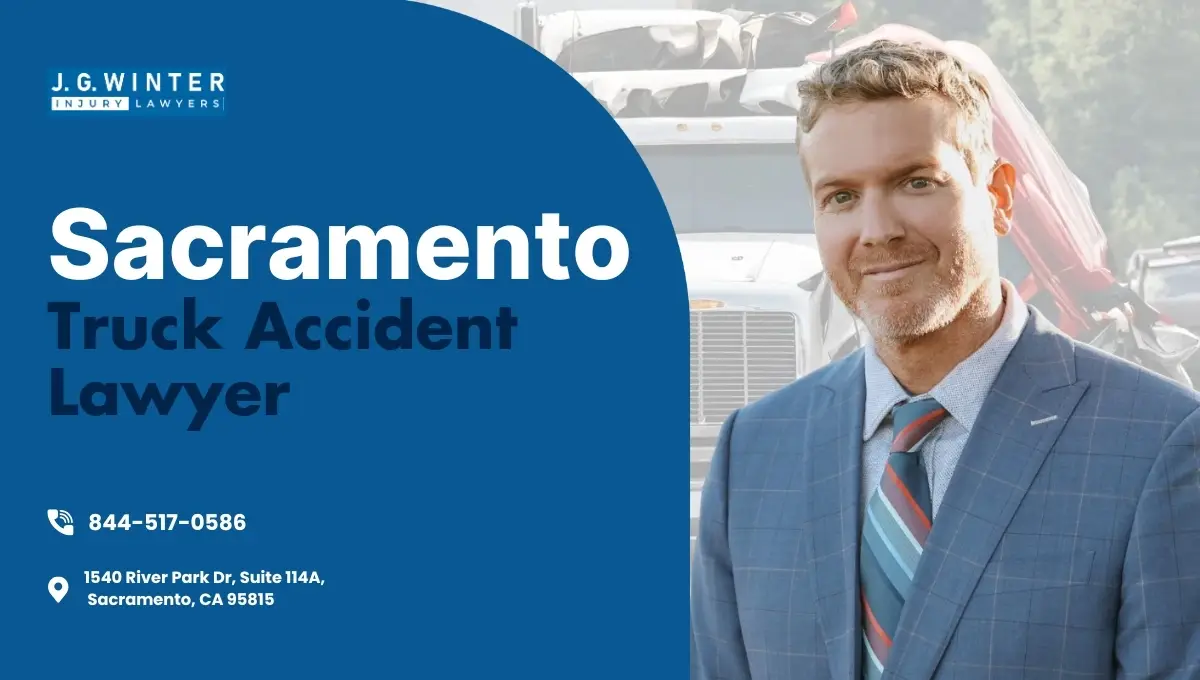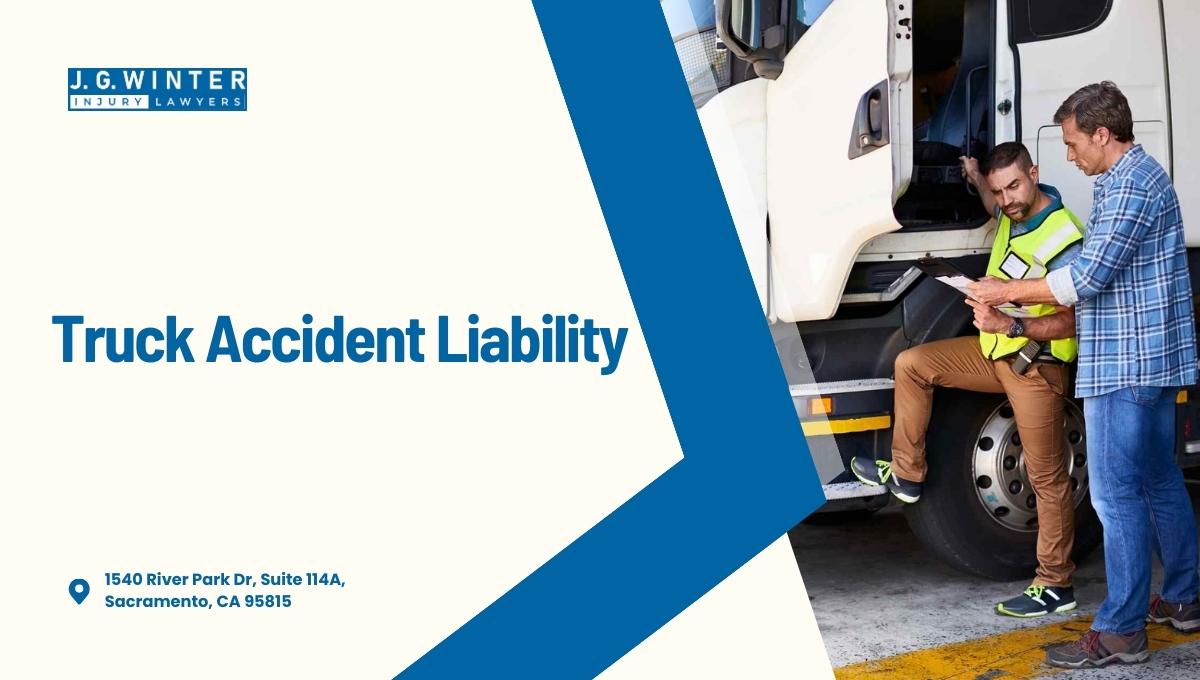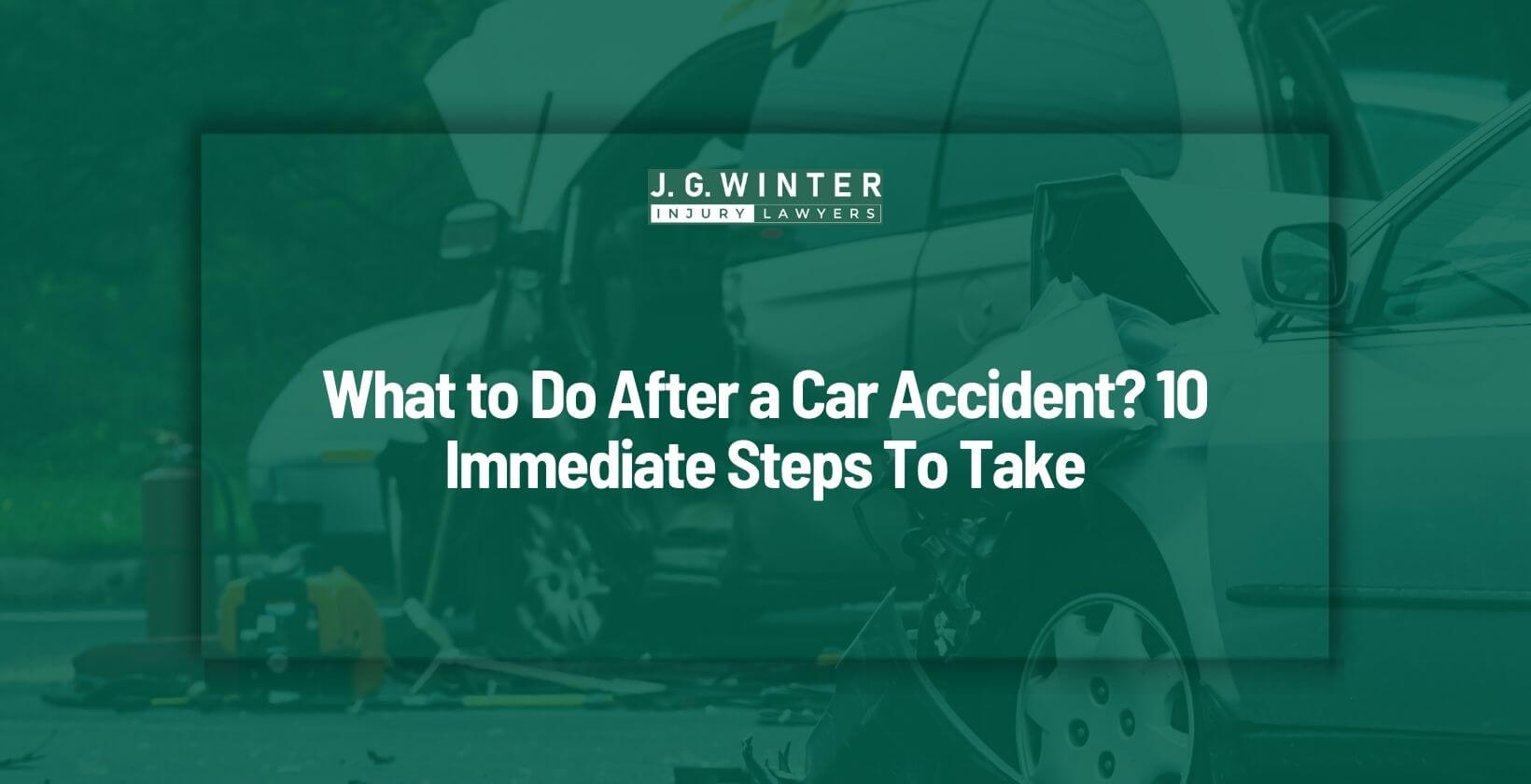Truck accidents often leave victims facing severe injuries, financial hardships, and uncertainty about their legal rights. Understanding truck accident liability is essential for holding negligent parties—such as drivers, trucking companies, and manufacturers—accountable while pursuing fair compensation.
What you need to know about truck accident liability
Truck accident liability determines who is legally responsible for the damages caused by an accident. These cases are complex because multiple parties, including drivers, trucking companies, or manufacturers, may share responsibility. Engaging professionals experienced in the legal process of truck accidents ensures victims receive fair representation and justice.
What is liability in truck accidents?
Liability in truck accidents refers to the legal responsibility assigned to parties whose actions or negligence caused the accident. This serves as the foundation for determining fault and pursuing compensation.
For example, liability may rest with:
- The truck driver for unsafe driving practices.
- The trucking company for poor maintenance or negligent hiring.
- A manufacturer of faulty parts contributed to the accident.
- Cargo loaders, if improper loading contributed to the accident.
- Road authorities for failing to maintain safe road conditions.
Seeking legal representation for professional truck accidents lawyer is essential for proving liability and ensuring victims receive the compensation they deserve.
How liability is determined in truck accidents
Establishing liability requires examining evidence, proving negligence, and applying relevant California truck accident laws. Key elements in this process include:
- Evidence in truck accident claims includes black box data, vehicle damage, and skid marks.
- Witness statements, providing recollections of the incident.
- Police reports, documenting violations or key details.
- Federal trucking regulations, such as those from the FMCSA, ensure accountability.
- Medical records describing the injuries caused and their long-term impact.
Since multiple parties may share fault, skilled legal representation is vital in building a strong case, gathering evidence, and pursuing the best possible outcome.
Key stakeholders in truck accident liability
Truck accidents often include responsibilities of different parties. Below, we outline their roles and how liability is determined.
The truck driver
Truck drivers have to handle their vehicles safely and follow federal and state regulations. They may be liable for accidents when they fail to meet these obligations. Truck driver errors often occur for several reasons, primarily due to negligence, such as speeding or texting; fatigue when drivers exceed legal driving hours, like driving long distances without breaks; or driving under the influence of mindbending substances including medications that cause drowsiness; and distracted driving such as using phones or other forms of distraction. The following evidence can be used to prove that the truck drivers were engaged in any of the acts mentioned above:
- Witness statements describing driver actions.
- Police reports noting traffic violations.
- Driver logs showing compliance with hours-of-service rules.
- Data from the truck’s black box or electronic logging device.
- Toxicology reports if the driver was under the influence.
The trucking company
Trucking companies are responsible for promoting safety by hiring qualified drivers, providing adequate training, and maintaining their vehicles. They can be held accountable for accidents if they do not follow these steps. Companies may show negligence in hiring if they fail to perform background checks, verify licenses, address past driving violations, or conduct proper medical screenings. Inadequate driver training puts everyone at risk, as drivers need to be skilled in handling large trucks.
Proper vehicle maintenance is essential for safety, as neglect can lead to problems like unnoticed manufacturer defects, mechanical failures such as brake issues or tire blowouts, and improper cargo loading, which can cause accidents. Additionally, pressure from trucking companies to meet tight schedules often leads to unsafe driving practices, such as driver fatigue or other rule violations, increasing the risk of commercial truck accidents.
The manufacturer
Liability can also reach the manufacturers in cases where the accident is caused by any defective parts in the truck itself. One example would be using unapproved materials in the trucks, which can lead to malfunctioning on the road. Here are some common issues that can affect vehicles:
- Faulty parts: Manufacturers could sometimes provide mechanical parts incompatible with the vehicles or poorly made. If these parts were used in the trucks, there may be sudden malfunctions on the road and cause accidents.
- Defective tires: If the manufacturers do not use the right material to make tires, they can break easily, causing the driver to lose control of the vehicle quickly.
- Brake failure: Likewise, manufacturing defects can cause the brakes to fail and cause the car out of control.
Other contributing factors include the actions of cargo loaders, other drivers, and road authorities. If cargo is not loaded correctly, it can shift or fall, making the truck harder to control and increasing the chance of an accident. Cargo loaders are responsible for securing loads safely to prevent these issues. There may also be other drivers at the scene can also contribute to crashes by cutting off trucks or ignoring traffic laws, which may result in shared fault for the accident. Additionally, poor road conditions, such as potholes, faded signs, or missing guardrails, can make driving unsafe. If government agencies fail to maintain safe roads, they could be held responsible under negligence laws. Because multiple parties may be at fault, accident victims should seek legal help to understand their rights and get fair compensation.
Victims’ rights and compensation in truck accident cases
Truck accident victims have specific legal rights designed to protect them and enable compensation for their losses. These rights include the pursuit of maximum compensation for medical expenses, lost wages, and non-economic damages such as pain and suffering. Victims can hold all responsible parties accountable, including drivers, trucking companies, and manufacturers. The claims process involves gathering crucial evidence like police reports and medical records, engaging in settlement negotiations with insurance companies, and seeking legal advice to navigate filing a claim. It’s important to note that under California law, the truck accident victims can file a claim within two years from the date of accident, and failing to act within this timeframe can result in losing the right to recover damages.
Consulting a legal professional truck accident lawyer early is essential to ensure compliance with deadlines and protect your rights while you focus on recovery.
Contact J.G. Winter Law to learn more about truck accident liability
Correct identification of liability can help you claim the right amount of compensation that you deserve to justify your suffering. At the Law Offices of J.G. Winter, our lawyers have expertise in legal processes involved in truck accidents, and we can assist you with recovering damages for medical expenses, lost income, and emotional suffering.
Whether you’re seeking compensation for injuries, dealing with loss, or facing other challenges due to a truck accident, our team is here to provide the support and legal expertise you need. With our no-win, no-fee approach, you can recover at ease while we fight for justice.
Reach out to us today to schedule a consultation and take the first step towards securing justice and compensation.

Frequently asked questions (FAQs)
Who can be held liable in a truck accident?
Truck accidents may involve multiple liable parties, including the truck driver, trucking company, vehicle manufacturer, cargo loaders, and road authorities.
What compensation can I receive for a truck accident claim?
Compensation usually includes several key elements: medical expenses, lost wages, and damage to property. It may also cover pain and suffering, emotional distress, and any future medical costs or rehabilitation needed.
How long do I have to file a truck accident claim in California?
California law allows two years from the accident date to file a claim. For claims against government entities, the deadline is six months.
Should I contact a lawyer after a truck accident?
Yes, consulting an experienced truck accident lawyer ensures your rights are protected and you receive the compensation you deserve.
What should I do immediately after a truck accident?
After an accident, it’s essential to follow key steps to protect yourself. Start by calling 911 for medical assistance and ensuring everyone’s safety. Next, document the scene with photos and videos and gather witness statements, if possible, to support your account. Obtain a copy of the police report for your records, and before talking to insurance companies, contact an attorney to safeguard your rights. These actions will help you navigate the aftermath more effectively.
How can a truck accident lawyer help?
A lawyer can help you after an accident by investigating what happened and gathering evidence. They can negotiate with insurance companies to secure fair compensation for you. If needed, a lawyer can file a lawsuit and represent you in court to protect your rights.


